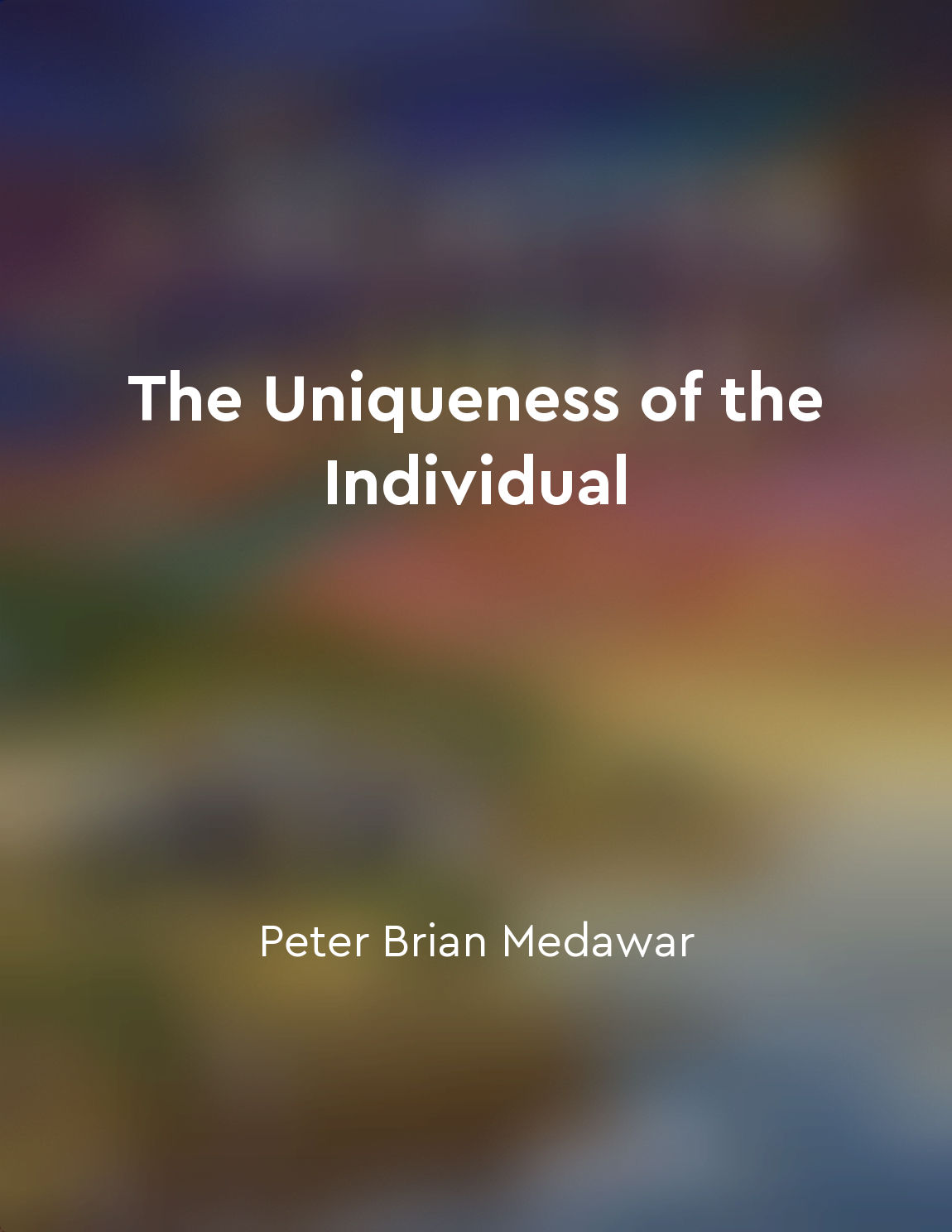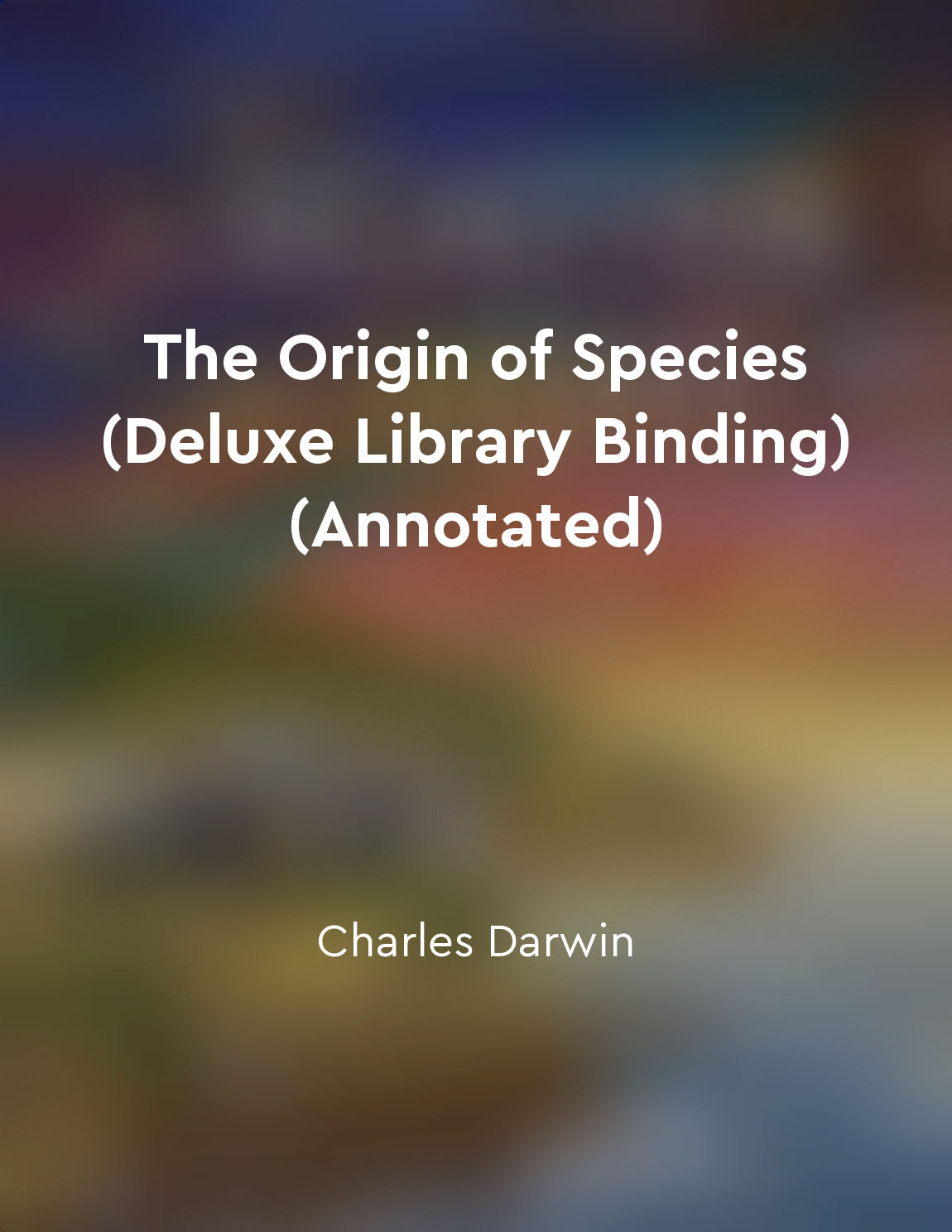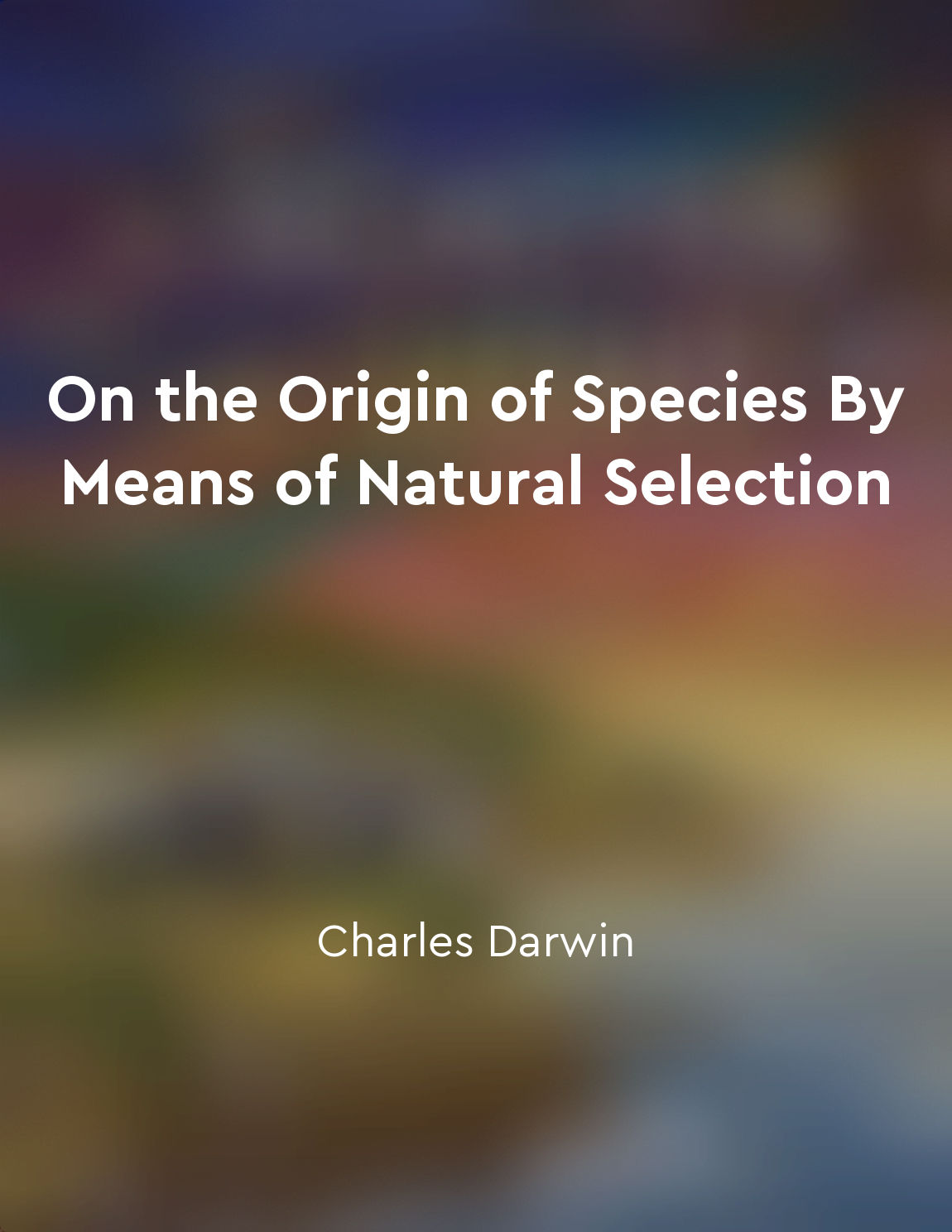Specialization for specific environments from "summary" of On the Origin of Species By Means of Natural Selection by Charles Darwin
The adaptation of organisms to their environment is a key principle in understanding the diversity of life on Earth. As individuals that are well-suited to their surroundings are more likely to survive and reproduce, natural selection acts as a mechanism for this process of adaptation. In various environments, different traits may confer a survival advantage to organisms. The concept of specialization for specific environments recognizes that certain characteristics may be more favorable in particular habitats. For instance, the long neck of a giraffe is well-suited for reaching high foliage in the savanna, while the streamlined body of a dolphin allows for efficient swimming in the ocean. Through the process of natural selection, organisms gradually acquire traits that enhance their fitness in their specific environments. Over time, these adaptations may become more pronounced as individuals with advantageous traits outcompete those without them. This leads to a gradual divergence in characteristics between populations living in different habitats. Specialization for specific environments can also result in the formation of new species. When populations become isolated in different environments, they may experience different selective pressures that drive them towards divergent evolutionary paths. Over time, these populations may accumulate enough differences to prevent interbreeding, leading to the formation of distinct species.- The concept of specialization for specific environments highlights the dynamic relationship between organisms and their surroundings. By adapting to the challenges posed by their environment, organisms are able to thrive and diversify, ultimately shaping the rich tapestry of life we see today.
Similar Posts
Climate Change
Climate change is a significant environmental issue that is affecting ecosystems and biodiversity across the globe. The Earth's...

Lifestyle choices impact overall health
Our lifestyle choices have a significant impact on our overall health. The way we choose to live our lives directly affects our...

Challenge assumptions
The concept of challenging assumptions is a crucial aspect of the adaptation process. It involves questioning the beliefs and i...
The search for a unified theory continues
The quest to find a single theory that can explain all the forces of nature has been a long and arduous one. Scientists through...
Genetic counseling helps individuals understand their genetic risks
Genetic counseling is a process that involves providing information and support to individuals who may be at risk of genetic di...
Specialization increases productivity and efficiency
Specialization is a fundamental concept that drives human progress and innovation. By focusing on a specific task or skill, ind...
Cultural evolution complements biological evolution
The development of human culture has been closely intertwined with biological evolution. As humans evolved, they also developed...

Personal experiences contribute to individual differences
The concept of personal experiences contributing to individual differences is a fundamental aspect of human development. Each p...

Geological processes shape biological diversity
The Earth's surface, with its varied features and formations, is a stage upon which the drama of life unfolds. Geological proce...
Evolution by natural selection explains the diversity of life
The central idea behind the theory of evolution by natural selection is that all the diversity of life we see on Earth today ca...


